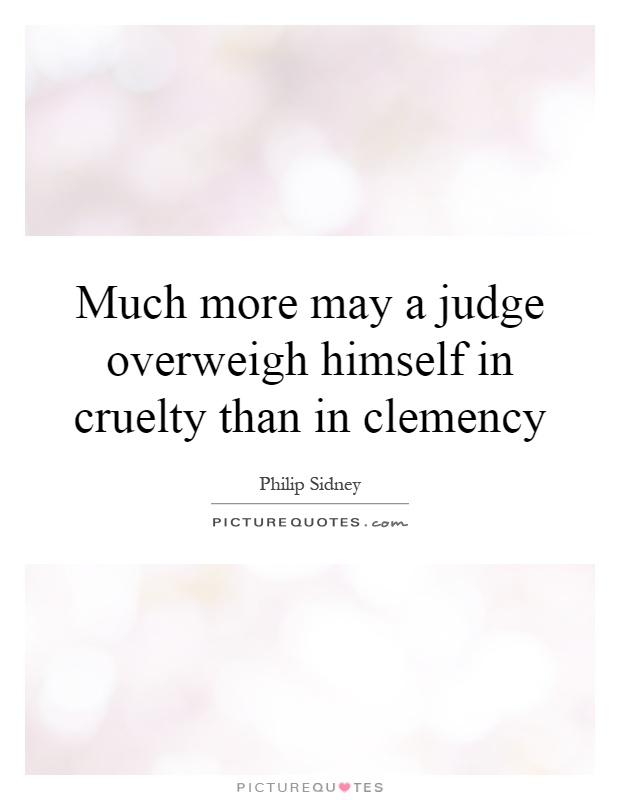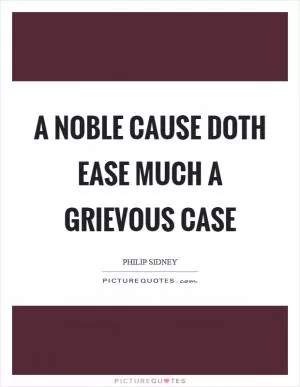Much more may a judge overweigh himself in cruelty than in clemency

Much more may a judge overweigh himself in cruelty than in clemency
In the context of Philip Sidney, the quote "Much more may a judge overweigh himself in cruelty than in clemency" holds significant meaning. Sidney was a prominent figure in the Elizabethan era, known for his chivalrous ideals and commitment to justice. As a courtier and diplomat, he understood the importance of fair and just governance, making this quote particularly relevant to his beliefs.Sidney believed that a judge's role was to uphold justice and maintain order in society. However, he also recognized the dangers of excessive cruelty in the pursuit of justice. In his view, a judge who is too harsh and unforgiving in his judgments can do more harm than good. Cruelty can lead to injustice, oppression, and the erosion of trust in the legal system. It can also create resentment and breed a culture of fear and hostility.
On the other hand, Sidney believed that clemency, or mercy, was a virtue that should be valued and practiced by judges. Showing compassion and leniency towards offenders can lead to rehabilitation, reconciliation, and the restoration of harmony in society. Clemency can also inspire respect and gratitude towards the legal system, fostering a sense of fairness and goodwill among the people.
Sidney's views on justice and mercy were influenced by his humanistic beliefs and his commitment to the principles of honor, integrity, and compassion. He believed that a judge should strive to balance the demands of justice with the virtues of mercy, temperance, and wisdom. By exercising clemency, a judge can demonstrate his humanity, his wisdom, and his commitment to the common good.












 Friendship Quotes
Friendship Quotes Love Quotes
Love Quotes Life Quotes
Life Quotes Funny Quotes
Funny Quotes Motivational Quotes
Motivational Quotes Inspirational Quotes
Inspirational Quotes